Laughter Primes Creative Problem Solving
 The health benefits of regular laughter are broadly known. Check out Laughter is the Best Medicine for a quick review.
The health benefits of regular laughter are broadly known. Check out Laughter is the Best Medicine for a quick review.
What is not so widely known, is that laughter can also immediately boost brain function and cognitive performance, especially in the area of creativity. For example, one study showed that watching 15-minute comedy video leaves you in a significantly more hopeful state. Being hopeful enables creative thinking.
Being open to laughter, generating chuckles and getting the full effects from a good laugh are all skills we can learn. One recent trend in this area is Laughter Yoga. In this approach you practice an exercise that combines laughing for no specific reason with Yoga-based breathing techniques. Not sure if it achieves the same effects as traditional laughter but it appears to. Perhaps it is even better!
Check out this video from the BBC on Laughter Yoga in London and you be the judge.
Interested to hear from readers that do laughter yoga or use other techniques to induce laughter on a regular basis for the purposes of health and improved cognitive performance.
Categories: Problem Solving, Training Tags: Yoga
What is Your Brain Performance Index?
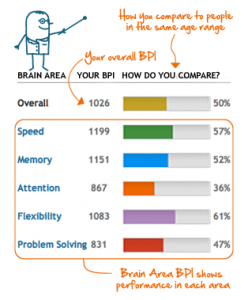 Lumosity, a leader in the growing field of cognitive training, has introduced the brain performance index. The index is an empirical and comparative measure of your ability to focus and sustain attention, processing speed, memory, problem solving skill and mental flexibility. You can set up an account and build your profile for free. If you want to know how you compare to others in your age group you need to subscribe.
Lumosity, a leader in the growing field of cognitive training, has introduced the brain performance index. The index is an empirical and comparative measure of your ability to focus and sustain attention, processing speed, memory, problem solving skill and mental flexibility. You can set up an account and build your profile for free. If you want to know how you compare to others in your age group you need to subscribe.
Like other instruments that assess your cognitive abilities, the brain performance index (BPI) gives insights into strengths and weaknesses. It should help you define goals for working on your next brain.
Interested to hear from readers that use the BPI or other assessment instruments to set goals for how best to achieve peak cognitive performance.
Categories: Memory and Learning, Mental Focus, Problem Solving, Software Tags: brain fitness
Use Tech to Manage Your 12,000 Daily Thoughts
 According to a widely quoted National Science Foundation Study, on average we have 12,000 thoughts per day. And it can run as many as 60,000 thoughts per day. I have been unable to locate the original study. No matter, we have all experienced the constant self talk and flow of ideas that make up everyday experience.
According to a widely quoted National Science Foundation Study, on average we have 12,000 thoughts per day. And it can run as many as 60,000 thoughts per day. I have been unable to locate the original study. No matter, we have all experienced the constant self talk and flow of ideas that make up everyday experience.
How do we mange so many ideas? Are there ways to manage our idea flow that will improve cognitive performance in decision making, self-regulation and creative problem solving?
Well known techniques for managing daily idea flow include journaling, keeping a notepad by your bed and other methods of trying to write them down. There is value in that but it is very low tech. Powerful but simple tools like Evernote, give us a way of quickly capturing our idea flow electronically (phone or computer) and relating it to other on-line documents and information.
The very act of documenting our idea flow slows it down and changes it. We may lose important notions. Fortunately, voice recognition technology has advanced to the point where we can reliably capture our thought by speaking to our phone or computer. Check out the Dragon line of naturally speaking products from Nuance. They have dictation and voice recognition products for every need including the iPhone dictation app shown below.
But will using technology to smoothly capture our thought flows improve our cognitive performance?
There is some evidence it does. For example, in the June 2011 issue of Wired, Clive Thompson argues in his story, Hold That Thought, that voice recognition technology may help us be more creative and over come mental challenges such as writer’s block.
From a general standpoint, having a transcript of all our thoughts in a given day could provide many insights. For example, we could identify patterns of self-talk that are negative or see bits of important ideas that might otherwise have been lost.
This summer I am planning to do some simple experiments at Northwestern University with students in my cognitive design class on capturing and analyzing daily though flows. I will blog the results. In the meantime, I am interested to hear from readers on how you capture daily thoughts and use that to improve cognitive performance.
Categories: Manage Emotions, Problem Solving, Software Tags: smart phone
Music Lessons Offer Lifelong Cognitive Benefits
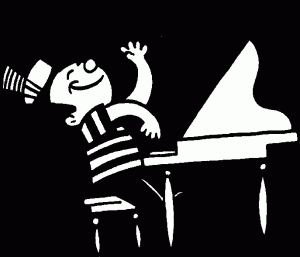 Music is great for the brain in many ways. Learning to play a musical instrument is an excellent investment in improving brain function and cognitive performance. An interesting new study suggests that the brain boost we get from music lessons may last a lifetime. The study reported by the American Psychological Association examined the cognitive performance of adults (ages 60 t0 83) that studied music in childhood.
Music is great for the brain in many ways. Learning to play a musical instrument is an excellent investment in improving brain function and cognitive performance. An interesting new study suggests that the brain boost we get from music lessons may last a lifetime. The study reported by the American Psychological Association examined the cognitive performance of adults (ages 60 t0 83) that studied music in childhood.
“The high-level musicians who had studied the longest performed the best on the cognitive tests, followed by the low-level musicians and non-musicians, revealing a trend relating to years of musical practice. The high-level musicians had statistically significant higher scores than the non-musicians on cognitive tests relating to visuospatial memory, naming objects and cognitive flexibility, or the brain’s ability to adapt to new information.”
While these findings are tentative and require additional research, they do signal that musical training is a powerful tool for building your Next Brain.
Interested to hear from readers that were trained musically as children. How has that shaped your cognitive skills as an adult?
Categories: Child, IQ and EQ, Memory and Learning, Music and Audio, Older Adult, Perception, Problem Solving, Training Tags:
10 Proven Ways the Body can Boost the Brain
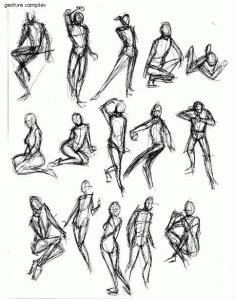 How we use our bodies influences brain function and cognitive performance. Walking around to think out problems, gesturing with your hands to articulate a a complex point, smiling to feel happy, playing catch for a study break to enhance learning, taking a nap to supercharge problem solving and many other simple behaviors have scientific backing.
How we use our bodies influences brain function and cognitive performance. Walking around to think out problems, gesturing with your hands to articulate a a complex point, smiling to feel happy, playing catch for a study break to enhance learning, taking a nap to supercharge problem solving and many other simple behaviors have scientific backing.
Found a post on the PsyBlog, 10 Simple Postures That Boost Performance, that summarizes this effect well. The author tells you specifically what to do, why it works and then in some cases provides a link to a scientific study that backs it up.
This is a great way to get started in using your body to boost your brain. Don’t expect instant results. It takes some time and practice. You may want to read the supporting articles to get the details.
Very interested to hear from readers that use simple body-based techniques to improve cognitive performance.
Image Source: Blazedent
Categories: Lifestyle, Memory and Learning, Problem Solving Tags: embodied cognition
Brain Teaser Made of 216 Tiny Magnets
 There is some evidence that working puzzles and playing certain types of games helps to maintain brain function and improves specific areas of cognitive performance. There are many posts on the Next Brain Blog about such games.
There is some evidence that working puzzles and playing certain types of games helps to maintain brain function and improves specific areas of cognitive performance. There are many posts on the Next Brain Blog about such games.
One I was recently introduced to is made up of 216 small but very powerful magnets that you can recombine into a wide variety of shapes. It is a simple addictive toy. Although I am not aware of any studies on its effectiveness, the idea is to stimulate your brain by thinking up and making fun and interesting shapes. And it seems popular with those interested in brain training. A version of it called, Buckyballs, is a brainy bestseller at Marbles – the brain store.
Working with your hands to make a shape you dreamed up or just play around is a key feature. You accidentally discover cool shapes and learn a little bit about the laws of physics.
Interested to hear from readers about other direct manipulation toys that seem to have a brain boosting effect.
Categories: Mental Focus, Perception, Problem Solving Tags: games
Speaking Two Languages Acts as Mental Gym
 New research from Penn State, Juggling Languages Can Build Better Brains, overturns previous thinking about the impact speaking more than one language on brain function. Rather than creating confusion, it turns out that being bilingual or learning to speak a second language can improve your ability to multi-task. Specifically:
New research from Penn State, Juggling Languages Can Build Better Brains, overturns previous thinking about the impact speaking more than one language on brain function. Rather than creating confusion, it turns out that being bilingual or learning to speak a second language can improve your ability to multi-task. Specifically:
“Recent research indicates that bilingual speakers can outperform monolinguals–people who speak only one language–in certain mental abilities, such as editing out irrelevant information and focusing on important information, said Judith Kroll, Distinguished Professor of Psychology, Penn State. These skills make bilinguals better at prioritizing tasks and working on multiple projects at one time.”
Learning a second language requires considerable time and energy. You also need to be in a situation where you can use both languages regularly. Despite these difficulties techniques proven to build your mental focus are rare. Improved mental focus pays a lifetime of benefits.
Interested to hear from bi or multi lingual readers willing to share their impressions on how additional languages are impeding or accelerating their brain function and cognitive performance.
Categories: Mental Focus, Problem Solving, Training Tags:
Low Dose Electrical Current Boosts Creativity
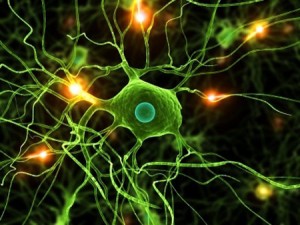 Our thinking and decision-making is strongly shaped by what has worked in the past. Success is compiled into rules and mental sets that make us more efficient but also blind us to innovative alternatives. If we could safely disrupt the applications of mental sets at the right time we might enhance our creativity. That idea was recently tested using transcranial direct current stimulation (tDCS) by researchers at the Center for the Mind.
Our thinking and decision-making is strongly shaped by what has worked in the past. Success is compiled into rules and mental sets that make us more efficient but also blind us to innovative alternatives. If we could safely disrupt the applications of mental sets at the right time we might enhance our creativity. That idea was recently tested using transcranial direct current stimulation (tDCS) by researchers at the Center for the Mind.
The experiment involved 60 subjects that were given a creative problem to solve. Some received a small electrical current applied to their brain in a region thought to hold mental sets that guide our problem solving. The results were dramatic:
“Only 20% of participants solved an insight problem with sham stimulation (control), whereas 3 times as many participants did so…”
A strong effect but one that needs to be repeated and further explained using brain scanning studies.
Only a tiny amount of electrical current is being used in tDCS. It has been the focus of other studies designed to enhance cognitive performance. We covered one from Oxford University in an earlier post on the Next Brain Blog.
I am interested to hear from readers about how low-level direct current is being used to stimulate cognitive performance.
Categories: Other, Problem Solving Tags: cognitive bias, experiential learning, tDCS
Warm Up Your Mood to Boost Creativity
 Warming up is clearly important for safety and high performance in physical activities and competitive sports. The same is true for mental activity and cognitive sports.
Warming up is clearly important for safety and high performance in physical activities and competitive sports. The same is true for mental activity and cognitive sports.
In an earlier post we discussed how having a friendly social conversation for 10 minutes to warm up your brain will improve cognitive performance. Now CNN Health reports on two recent studies that show humor or positive mood can improve creativity and puzzle solving ability.
More specifically, one study found that watching YouTube videos that put you in a good mode (watching a happy baby) increases your ability to learn a rule to categorize a problem.
This suggests simple mood elevating techniques can warm up your brain and improve cognitive performance. Need to be creative? Take time out to laugh.
Source: Happy Baby Image
Categories: Lifestyle, Problem Solving Tags: creativity
Warming Up Your Brain Improves Performance
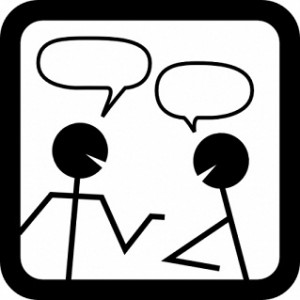 Want to improve your ability to solve a problem, take a test, deliver a presentation or perform some other cognitive task? Make sure you stimulate your brain by having a friendly social conversation before taking on the task. According to researchers at the University of Michigan, this friendly-chat brain boosting technique works well because:
Want to improve your ability to solve a problem, take a test, deliver a presentation or perform some other cognitive task? Make sure you stimulate your brain by having a friendly social conversation before taking on the task. According to researchers at the University of Michigan, this friendly-chat brain boosting technique works well because:
“… some social interactions induce people to try to read others’ minds and take their perspectives on things,” Ybarra said.”
A 10-minute “get to know you” conversation produces the effect. The researchers warn that the effect does not work if the conversation has a competitive tone.
Interested to hear from readers on what else we can do to “warm up” our brains before a cognitive performance.
Categories: Lifestyle, Memory and Learning, Problem Solving Tags:

